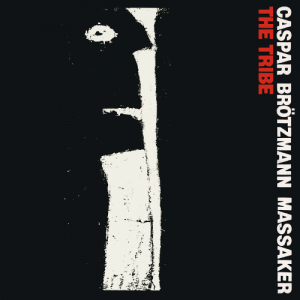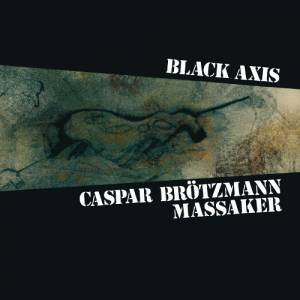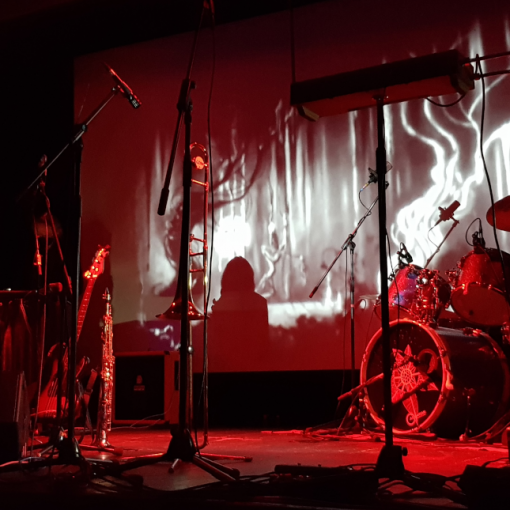 After listening to these first two re-issues in a planned series, I can see why Southern Lord would want to be responsible. Thirty years after their initial releases, their legacy lives on in the sound and sweep of various members of the Southern Lord roster both past and present.
After listening to these first two re-issues in a planned series, I can see why Southern Lord would want to be responsible. Thirty years after their initial releases, their legacy lives on in the sound and sweep of various members of the Southern Lord roster both past and present.
It is probably well known that Caspar is the son of free-jazzer Peter Brötzmann, and that he took to guitar as a reaction to the music that would have been heard regularly around the house in his youth. That desire to construct something that nodded perhaps to the likes of Jimmy Page and Jimi Hendrix, but pushing it right to the other end of the room, would enable him to step out from any shadow that his father may have cast.
The Tribe was recorded in 1987 and released in 1988, and to be honest is contemporaneous in sound and texture to some of the US bands of the era, the likes of Butthole Surfers or maybe The Jesus Lizard. But there is a single-minded intensity to the album makes it stand it out — plus the fact that what else was happening in Germany at the time? Were there any like minds ploughing these kinds of furrows? Thankfully, to ensure that his grinding experiments in sound were kept on the tracks, he had the backing of bassist Eduardo Delgado-Lopez, brother of DAF‘s Gabi, and a drummer known only as Jon, and a fearsome three-headed beast they became. The Tribe is split over eight tracks and opens with the rhythm section bludgeoning you over the head in a similar manner to Swans. They are a blunt object with heavy cymbal use, into which Caspar infuses his snarling vocal and heavy riffing. It is when the guitar explodes into scorching abuse that his vision becomes apparent, as it sounds as though the instrument is alive and he is trying to throttle it as it fights back with every ounce of energy. A Doppler effect that also sounds like he is washing the fretboard down with acid infects “Blechton” and shards of napalm strewn with the sweetest of feedback are the main ingredients in “Massaker”. This latter is an eight-minute rollercoaster, with the band trying to beat you into submission with a slow, heavy rhythm and the trapped animal guitar.There is always something thrilling listening to someone push their guitar to extremes and on this album, if that is your cup of tea, you are in for a treat. The galloping rhythm in “The Call” is exuberant, the sound always on the edge of disintegrating with the guitar never sounding clean. There is a constant addition to the sound of the strings that pushes them away from 99.9% of guitar records and into the realm of the few where it becomes something else, something uncontrolled. There is a metal edge to some of the riffing, but it never strays into that schlocky sound. It is like any half-remembered riffs from Caspar’s childhood are grabbed from behind and injected with an unexpected virus that renders them unrecognisable from then on.
Black Axis was recorded and released in 1989, and by this time, Jon had been replaced by Frank Neumeier on drums and Caspar was honing his sound into something less familiar. This time spread across six tracks, the group had even more opportunity to branch out and the billowy, gnawing feedback that opens first track “Die Tiere” feels a little denser. It sounds as though Caspar is growling “I am in the library”, which somehow makes the racket produced that bit more intense. You couldn’t find more library inappropriate music if you tried! It all feels a little more serious too, as if the trio have grown up a little and are narrowing down their attack.The guitar sounds like a siren on “Hunter Song” and the structure is a little simpler, allowing for more precision. It is more about the textures that can be wrung from the guitar, and on “Bohmen”, it becomes about the cumulative effect of repetition. There is a nod to Swans here and there, but it doesn’t quite have that sense of nihilism. The drums are great here, but struggle to break through the monopoly the guitar holds on the mix. This track is like being with the band as they cut a swathe through impenetrable jungle, just using their instruments to dissolve any impediment.
The drums sound tabla-like on “Mute”, while the guitar evokes a circular saw at certain points, and its one note insistence on “Tempelhof” possibly owes a little something to Rhys Chatham. Here, Caspar’s bear-like growl accompanies a guitar that veers from rubbery to shrieking, then back to the one-note mantra. Meanwhile, the bass growls in the background like a loose cement mixer, scraping up any loose shards ad flinging them back into the whole. The album closes with the fifteen-minute title track, and this is where you feel that Caspar is disappearing into his own world. The different textures are fascinating, with the light shimmer of the top string merging with the clash of spurs and crashing of swords being attacked with an angle-grinder. The rhythm section appears after a little while, and canters forward as the guitar blisters and bubbles, questing for something that only Caspar can find, the sound gradually turning into the whine of a diving aircraft as all around is strafed with molten lead. The bass and drums are stampeding at this point, but can only hold on for so long before they run out of steam, and the track and the album come to a close.I had never heard Caspar Brötzmann before and these albums are a revelation. A reaction to his father and maybe to the static German music scene, who knows. What is apparent is that there is a single-minded vision here that he was more than capable of developing into an exciting and uncompromising rush of noise. Long out of print, we have Southern Lord to thank for thrusting them back into the public’s consciousness.
-Mr Olivetti-



